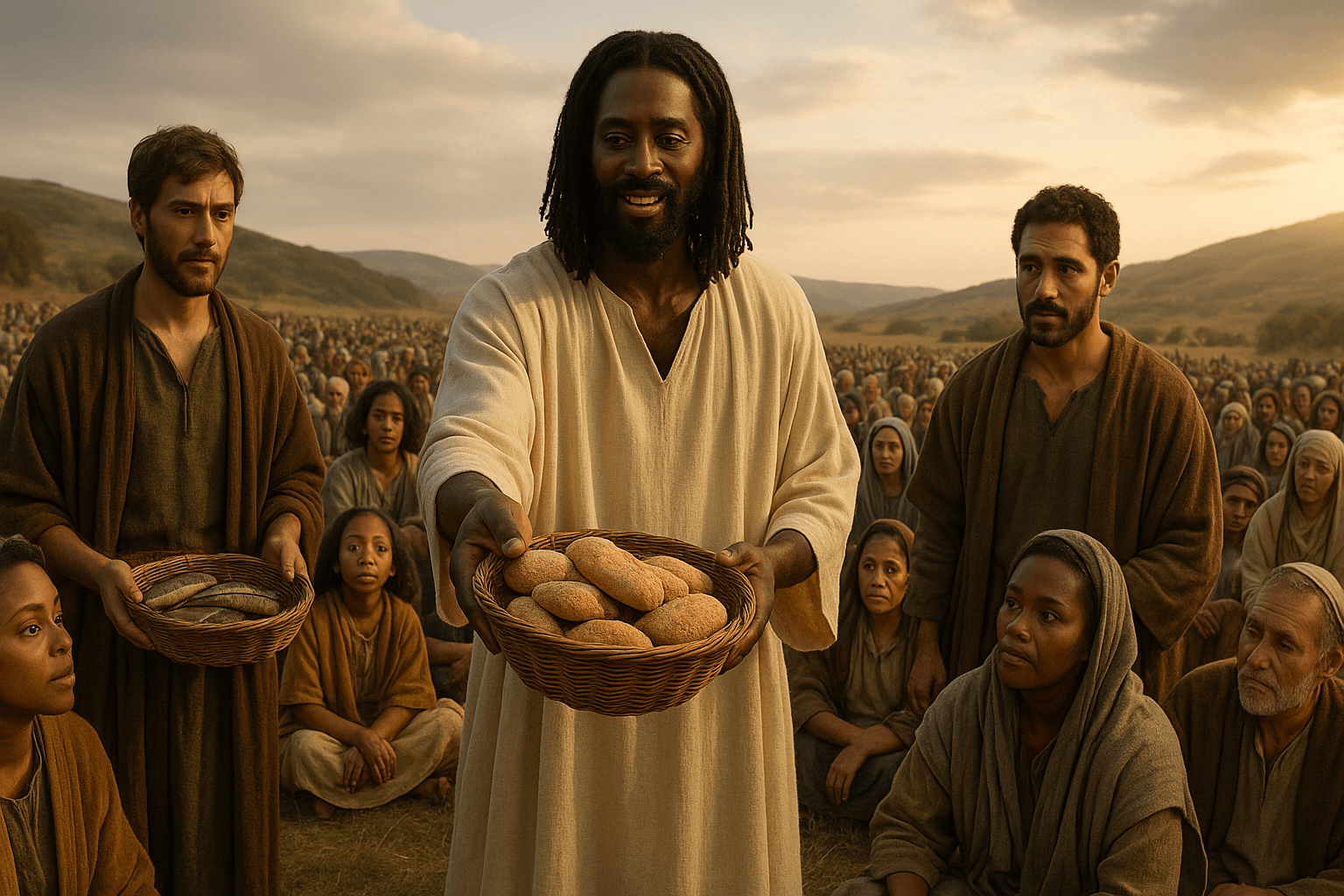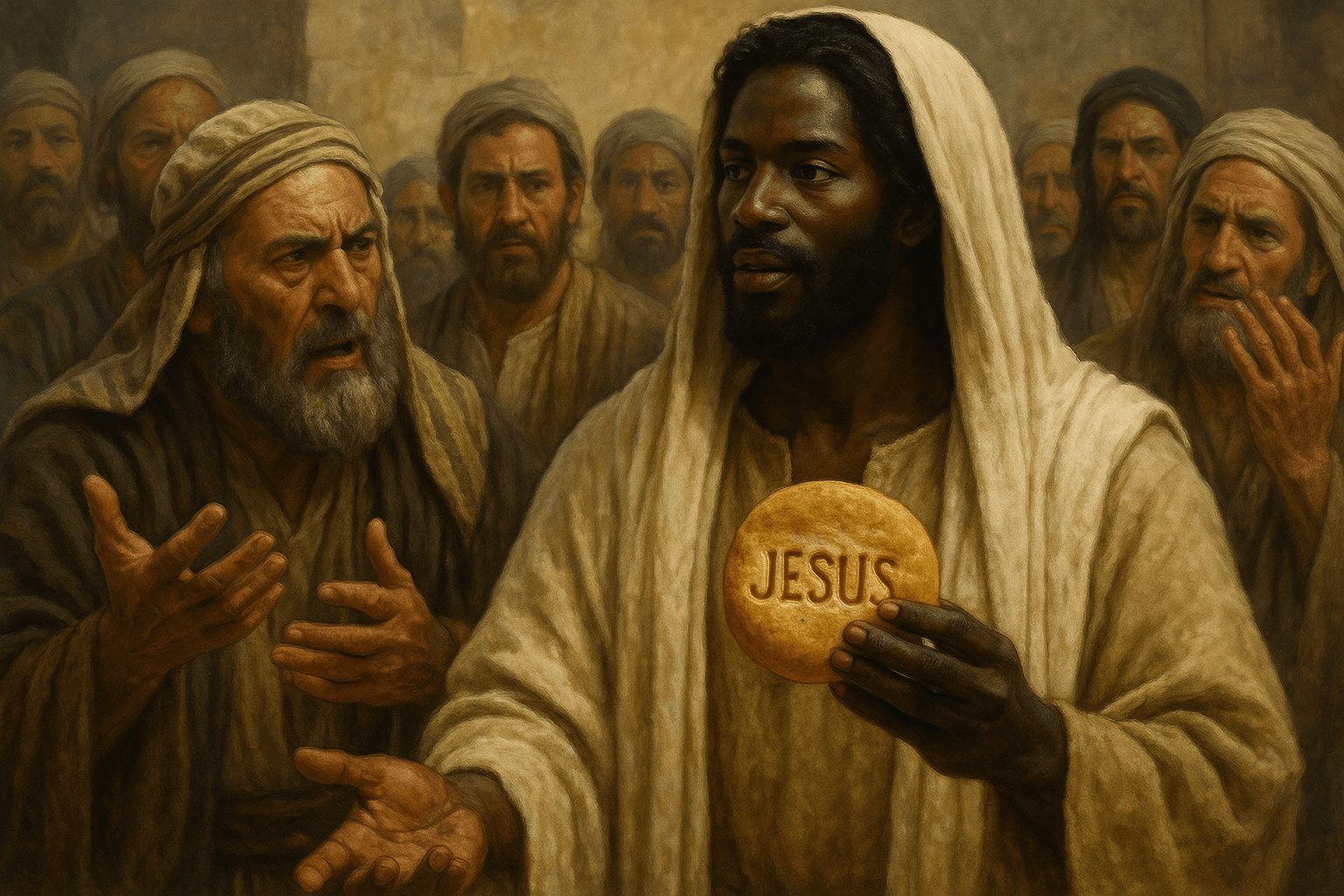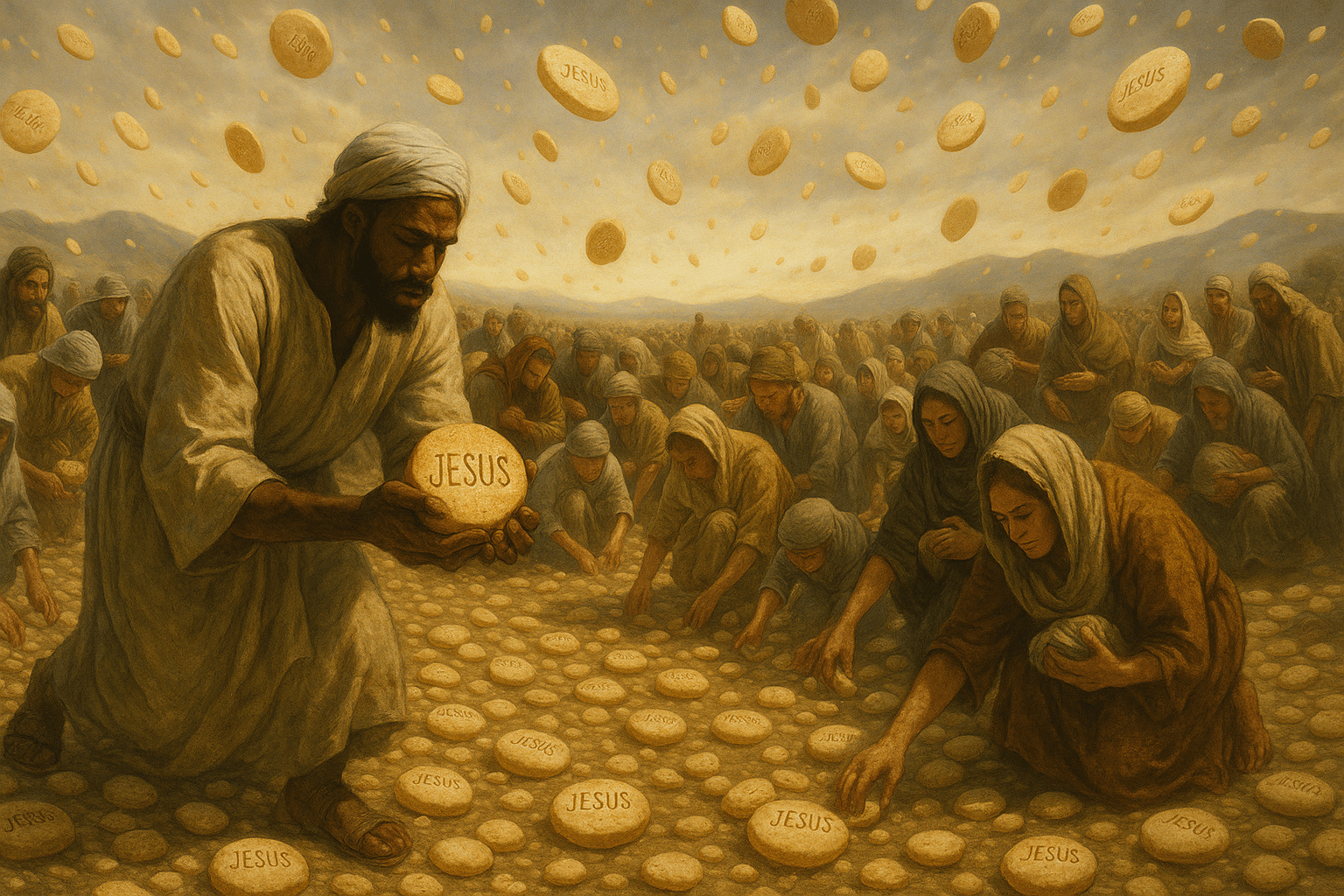The Bread of Life: Grace vs. Works
John 6 give us some very interesting conversations that can potentially shed light on the relationship between Grace and Works. Love is the very nature of God. His Grace is the expression of His Love. While this became very clear when God came in human flesh as Jesus Christ, Grace has always been the nature of God in the Old Testament. This is why we have to properly dissect the Old Testament text through the lens of Jesus.

In John 6:1–15, Jesus miraculously fed about five thousand men, which likely means over ten thousand people when women and children are included, using only five small barley loaves and two fish. In John 6:16–24, He walked on water while the same crowd He had fed continued seeking Him. By John 6:24, the crowd finally caught up with Him, and this is where the deeper conversation between Jesus and the people began.
LESSON 1: Jesus the Bread of Life
Jesus uses bread to make the analogy about what we all need to do to be saved. Since He had just fed them, bread was the perfect analogy to drive home the point about Works vs. Grace.
“Do not work for food that spoils, but for food that endures to eternal life, which the Son of Man will give you. For on him God the Father has placed his seal of approval.” (John 6:27)
Jesus had just fed the five thousand (John 6:1–15), and the crowd followed Him seeking more bread. He uses this moment to shift their focus from temporary, physical food to Himself—the Bread of Life. He was telling them: stop working for bread that spoils but work for the real Bread standing right in front of them.
This clearly wasn' what they were expecting. The conversation continues.
LESSON 2: The Work of God
“Then they asked him, ‘What must we do to do the works God requires?’” (John 6:28)

After Jesus told them about not working for food, they decided to ask about what they must do to do the works of God. They were still on the theme of works and legalism. To them, they have to do something. Keep in mind that Jesus had just fed them without them paying a dime for it. Jesus responded again:
“Jesus answered, ‘The work of God is this: to believe in the one he has sent.’” (John 6:29)
In other words, All you have to do is BELIEVE. No "doing."
If you grew up in church like I did, you have probably seen different versions of what it means to do the work of God: preaching the Gospel, joining a ministries within the church, doing missionary work, etc. But Jesus gave a very clear and unambiguous answer: believing in Jesus Christ is the work of God.
This is the definition of Grace. All we have to do is believe.
Does this invalidate the other “works” that we do in the kingdom? Of course not. But Jesus makes it very clear: the work that God requires is to believe.
LESSON 3: Jesus the Fulfillment of the Law
“So they asked him, ‘What sign then will you give that we may see it and believe you? What will you do? Our ancestors ate the manna in the wilderness; as it is written: He gave them bread from heaven to eat.’” (John 6:30–31)
In their continued resistance to the message of Grace, they asked Jesus for a sign. Just "believing" was NOT enough. They needed a sign to believe in Him.
In their request, they referenced the Old Testament manna. Unfortunately, this is still true today—2,000+ years later. Faith in Jesus often still has to be tied to anointing oil, holy water, Holy Communion, water baptism, and all kinds of symbolism. Otherwise, people will not believe.
Jesus responded:
“Very truly I tell you, it is not Moses who has given you the bread from heaven, but it is my Father who gives you the true bread from heaven. For the bread of God is the bread that comes down from heaven and gives life to the world.” (John 6:32–33)
He essentially told them that He is the real manna—the true bread from Heaven.

The manna in the wilderness was a prophetic expression of the coming of God in human flesh. The Old Testament was the type and shadow of the true reality. The true reality is Jesus Christ.
“Then Jesus declared, ‘I am the bread of life. Whoever comes to me will never go hungry, and whoever believes in me will never be thirsty. But as I told you, you have seen me and still you do not believe.’” (John 6:35–36)
From Jesus’ own words, the way to eat the Bread of Life is by believing in Him. This is Grace. It is not by law, not by signs, and not by works.
In Conclusion: Works vs. Grace
“I am the bread of life. Your ancestors ate the manna in the wilderness, yet they died. But here is the bread that comes down from heaven, which anyone may eat and not die. I am the living bread that came down from heaven. Whoever eats this bread will live forever. This bread is my flesh, which I will give for the life of the world.” (John 6:48–51)
We encourage you to read the whole chapter. Jesus as the Bread of Life is a central theme in the Christian faith and is often referenced during Holy Communion. The context of eating “His Flesh” is always about having faith in Him. It was an analogy Jesus used because He had just fed thousands of people. He used that analogy as well during passover feast.
We must resist the instinct to complicate it. We are children of the Most High God. We do not live by rituals, nor do we imitate those who practice them.
Often, resistance to the message of Grace comes from legalism and works. We see all of these in this conversation. Faith in Jesus is enough. That was Jesus’ message. As simple as it is, humanity has resisted the message of Grace from the beginning—and we still resist it today. All we have to do Believe.
“Just as the living Father sent me and I live because of the Father, so the one who feeds on me will live because of me.” (John 6:57)
We eat to survive. We depend on food for life. In the same way, Jesus depended on the Father, and we must depend on Him to live. He has to be our food. We have to Feed on Him (as said in the above verse) by having faith in Him. That is His will, and that is the will of the Father—for us all to have perfect union with Him.
It is and it was never about works.
“In that day you will know that I am in my Father, and you in me, and I in you.” (John 14:20)